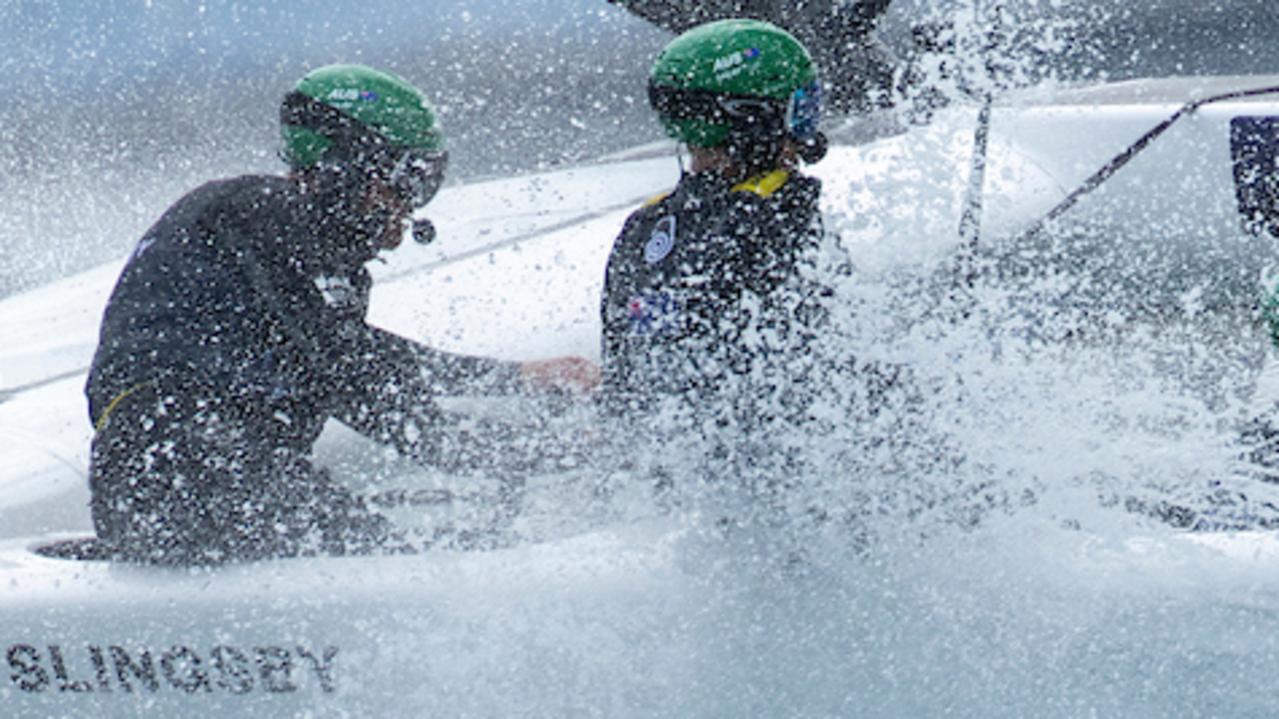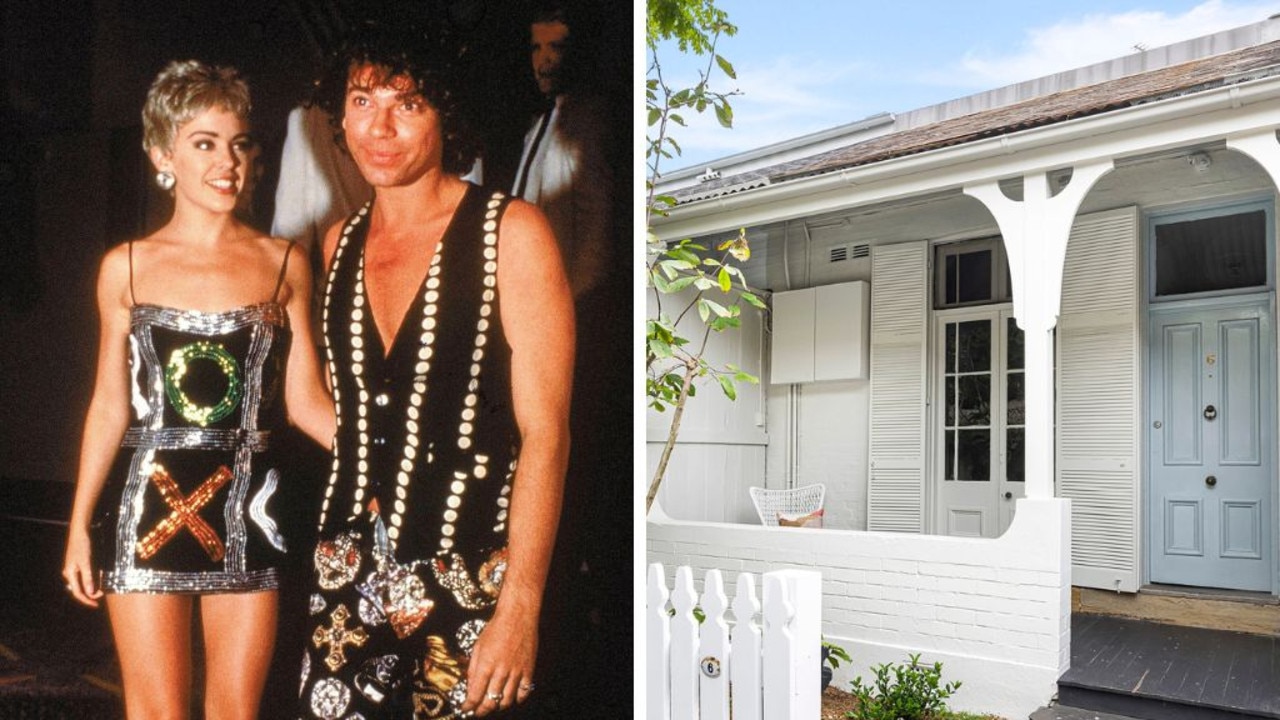A year on: Ukrainian refugees find solace in Sydney’s north shore and eastern suburbs
A year into the Russian invasion, Ukrainian refugees living in Sydney talk about their lives and what it’s like to start again.
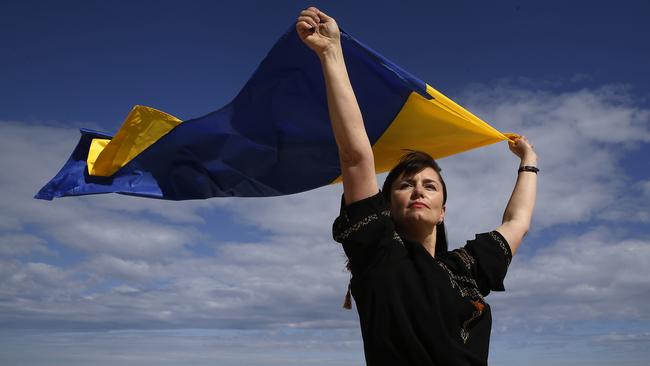
Wentworth Courier
Don't miss out on the headlines from Wentworth Courier. Followed categories will be added to My News.
A year into the Russian invasion, Ukrainian refugees living in Sydney’s north shore and eastern suburbs talk about their lives and what it’s like to start again.
ONE YEAR ON
As a talented young musician in Ukraine, Anastasia Pyshna had long dreamt of going to music college in the capital, Kyiv.
That dream was shattered – along with countless others – when Russia invaded the country last February.
But being accepted into the Sydney Conservatorium of Music has provided a glimmer of hope for the 13-year-old and her proud mother, Tetyana.
“She’s very happy and I’m very happy,” Tetyana says. “It’s very exciting. She had to do a lot of exams and IQ tests. It was a different system of music.”
The pair have been living with extended family in Lindfield since fleeing their home at Kremenchuk in central Ukraine but are now looking for their own apartment in St Leonards.
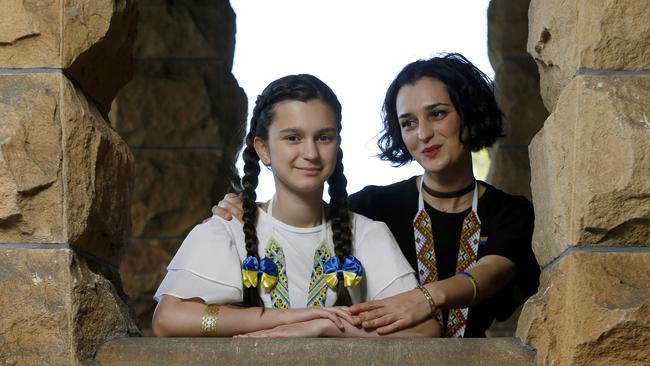
Tetyana recently began a new job at not-for-profit organisation STARTTS, which provides culturally relevant psychological treatment and support to displaced people and helps them rebuild their lives in Australia.
“At first it was very hard,” she says.
“We cried a lot every day. It’s all very different for us – different language, traditions, everything. But we really try to be brave and strong and improve our English.
“I was very bad at English when I arrived, but I did English lessons at TAFE four days a week and I go to a conversation group at church. We have made a lot of friends here and met many, many kind people.”
Tetyana’s husband stayed behind to fight in the war, but she speaks to him by phone a few times a week when possible.
“In my city they don’t always have phone or internet and he works as a civilian volunteer, so sometimes he goes to take food and medicine to territories where there might be no connection,” she says.
“So sometimes we send audio messages so he can listen when he can.”
Tetyana’s father, brother-in-law, nephew and cousin are all fighting in the war.
“I miss my family, my city, my home,” she says.
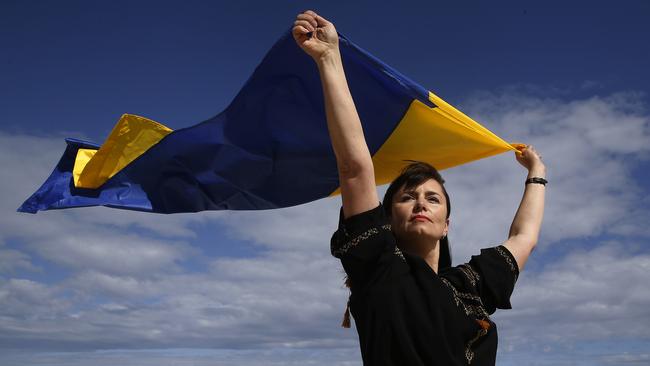
The pair are able to stay in Australia on a humanitarian visa for three years, but the future is uncertain.
“We don’t have a plan because all of our plans are broken,” Tetyana says.
“I see on Facebook some of my friends have lost husbands, brothers, mothers, everything. For Christmas and New Year, we wished for victory for Ukraine, peace in all the world and health for our family.”
OCEANS APART
Growing up near the port city of Odesa on the Black Sea, Natalia Borodina didn’t see a lot of waves. She had never heard of a rip before fleeing Ukraine with her family last April, a couple of months after Russia invaded the country.
Since settling in Sydney, Borodina has been working hard to ensure not only that her family stays safe at the beach, but so too do other displaced Ukrainians, many of whom have limited swimming skills and have never seen the ocean before.
Through her role at the Ukrainian Helping Hand project, the former university lecturer has been facilitating Learn to Swim and Swim Safety programs at Bronte Surf Club, Bondi Surf Bathers Life Saving Club and Bondi Icebergs.
“Our sea coast is completely different compared with the ocean coast and ocean swimming,” she says.
“When your ocean is calm it can be compared to our not calm Black Sea. They don’t surf in our Black Sea, and the conditions are different. I have three sons and I’m a little bit worried about them staying safe in the ocean. Our children in general are not used to this.”
But, she says, the swimming program is not just about safety, it’s also about mental healing.
Borodina began working at the Ukrainian Helping Hand project – a partnership between the Ukrainian Council of NSW and Be Kind Sydney – in June.
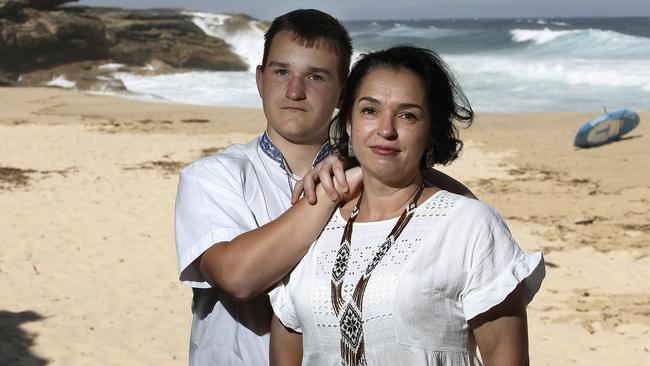
As well as the swim programs, she has been helping Ukrainians displaced by the war find places to live and get drivers’ licences, and fundraising for university scholarships.
Her efforts are much appreciated by people like Tetiana Taranuschenko and her 16-year-old son Georgy, who are taking part in the swim program.
The pair came to Sydney from occupied Kherson and are now living with friends at Matraville. Tetiana’s husband and other two sons stayed in Ukraine.
Her eldest son works in cyber security, while her middle son works as a doctor at a military hospital.
“They have no electricity, water or heat due to daily missile attacks by Russian terrorists,” she says. “We are unable to communicate because of the fighting there.”
Taranuschenko, who worked as a doctor in a maternity hospital in Ukraine, is now learning English at TAFE.
Georgy is also studying English, while doing online lessons with his old school in Ukraine at night. He was training as a professional rower in his home country, and now dreams of becoming a lifeguard.
“I really like Australia,” Tetiana says.
“I love its nature, especially the ocean. The ocean is so strong and powerful. I believe you should take safety courses to avoid tragic mistakes and get the joy of swimming.
“In Ukraine, we used to swim in the sea and river in summer. My children rowed and won championships in this sport. But this is the first time we’ve been to the ocean. That’s why a safe swimming lesson was very important to me.
“I am very grateful to everyone who is helping us to settle in, including government organisations and community organisations.”
Tetiana thinks about the future often and worries about what they will do when their three-year humanitarian visa expires.
“The situation in my country is very difficult and tragic,” she says. “I and many refugees have nowhere to go back to. My home is destroyed. There is fighting in my city and rockets are taking the lives of children and adults every day. On New Year’s Eve a children’s hospital was destroyed by shelling. Children and medical staff were killed.
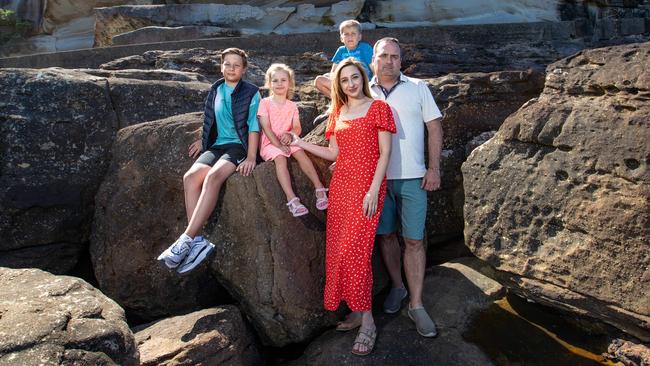
“The fate of Ukrainian refugees will be decided by the government. But in this short time Australia has become dear to me thanks to people around me and the ocean.”
SAFE HAVEN
Angelina Samko, her husband Andrii and children Artem, 14, Anton, 9, and Veronika, 6, have also settled well into Australian life.
After two months staying at her childhood friend Dasha’s apartment in Bondi, they moved into a two-bedroom apartment in the same building.
“It was an excellent option for us because the kids had already started to attend Bondi Public School and we didn’t want to move too far from it,” Angelina says.
“It was really hard to get a lease, but our friends helped us.”
The family, who previously lived at Berdiansk, one hour’s drive from Mariupol, have also been learning English.
“My English was good enough to communicate and understand people,” Angelina says.
“Of course, when I hear an Australian accent, sometimes it’s really hard to catch the words. My husband had very basic English before he arrived. He couldn’t understand and talk before, but he has improved his English greatly.”
Andrii, an electrical engineer who owned his own company in Ukraine, is working as a technician in Alexandria while Angelina, a cosmetic tattoo artist, is renting a beauty room at Bondi Junction.
“It was hard to start all over again from nothing, but I did my best,” she says.
“Australia is a beautiful country with kind, thoughtful people around. We try to see different places, parks and beaches. We enjoy spending time on the beach and having picnics with our friends.”
But her thoughts are never far from her family back home, and in November she received the devastating news that Russian soldiers had killed her father after two months of torturing him in prison.
“My husband and I couldn’t do anything during all that period he was there,” she says.
“The pain of my dad’s death is breaking my heart, especially the way they did it.”
The family’s hometown is still occupied, and most of their friends have left.
“Everything we do is for our kids,” Angelina says.
“The war affected them, and now we are working on their mental health. We want them to feel safe and protected. We are not thinking about returning yet. For as long as our hometown is occupied, we don’t have any chance to go back. We need to live here and now. We are doing our best to have a good life as we had before the war.”
HELP AT HAND
Ukrainian Council of NSW director Andrew Mencinsky, who lives at Edgecliff, says more than 1800 displaced people have arrived in Sydney since the war began in late February 2021.
“You have some good days but you have a lot of bad days where people here read about a missile strike that hit their village or town or someone who’s lost a loved one,” he says.
“We had a woman in Sydney whose husband died on the front. She was 32 and she has a four-year-old and a two-year-old.”
Over the past few months, the organisation has moved away from giving handouts to become more focused on helping provide opportunities.
“There’s only so many clothes or bags of potatoes you can give someone,” Mencinsky says. “We have put a lot of work into having sessions at TAFE, like financial literacy seminars, requalification pathways, employment pathways …
“They’re learning English, they’re studying, they’re requalifying, but it’s constantly over their heads that the risk of death is there for loved ones. They know what winter is like in Ukraine and that people will freeze to death. It’s really hard for them to be truly happy.”
To donate to Ukrainian Crisis Appeal, visit ukrainecrisisappeal.org

